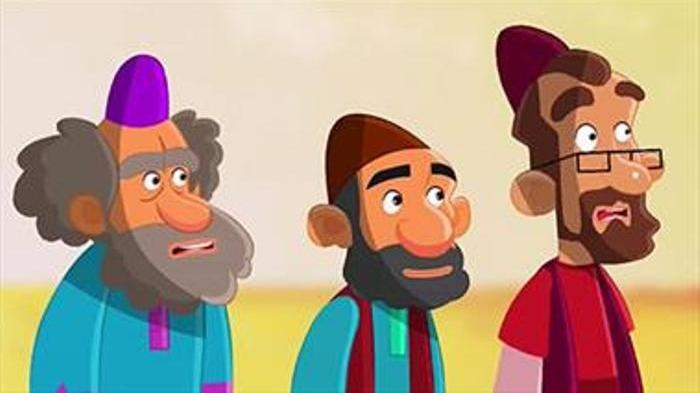Nuclear Animation Raises Controversy

October 2013, while Rouhani's7 handpicked team of diplomats was engaged in intense negotiations over Iran’s nuclear program, the “American Honesty” posters sparked controversy in Tehran. The posters, installed across Tehran, displayed Iranian and American diplomats sitting at the table, with the faceless American party donning military boots and khakis under the table, pointing a gun towards the Iranian side. The billboards did not appeal to the taste of Mohammad-Javad Zarif, foreign minister and head of Iran’s nuclear negotiating team, who sarcastically said he had no worries about such “direct or indirect kind gestures displayed even in public places in the capital.”
Last week, Owj, the media group who had produced the posters, raised controversy once again with release of a new animated movie that symbolically narrates the saga of Iran’s nuclear program and the course of negotiations. The plot of the “Becharkh ta Becharkhim” –which can be roughly translated as 'two can play that game'- goes as such:
Mr. Saam has occupied the island and subdued its people. He hates Agha Joon and his family who resist his control, especially after Agha Joon's grandsons try to make spinning tops for themselves, just like Mr. Saam's sons. Uncle Mohammad stops the kids from making tops after he sees Mr. Saams anger, but Uncle Mahmoud encourages the grandsons, Masoud, Majid, Ameneh, and Mostafa to continue and even make scooters. Seeing their insistence, Mr. Saam cuts water on the family's crop to force them to give up. One day, after Masoud, Majid and Mostafa came back home all bruised and wounded, Uncle Hassan asked Agha Joon to let him talk to Mr. Saam. Mr. Saam’s sons came and broke all the scooters afterwards, but kids did not stop and decided to make water pumps, and they re-cultivated their farm.
Resemblances are there for the audience to observe, and hardly concealed. Mr. Saam and his family are blonde. Uncle Mohammad, the elder who stops kids from making spinning tops wears Mohammad Khatami's eyebrows and glasses. The feisty Uncle Mahmoud easily reminds the audience of Mahmoud Ahmadinejad, while Uncle Hassan wears a cap in purple, the color of Rouhani's presidential campaign.
Despite the uninhibited message of its products, Owj seems reluctant to provide details about its owner(s) or corporate structure: "perhaps more important and better than knowing when Owj was established and who were its founders, … it is better to introduce its nature and identity" its About section reads. The group defines its most important mission as strategic policymaking in the field of arts within the framework of revolutionary discourse.
Owj has recently released the movie Bodyguard, the story of Haydar, veteran escort for a senior official who starts questioning his own mission after realizing that his patron puts personal interests before the interests of nezam, the establishment. Haydar is eventually assigned to protect a young nuclear scientist.
Becharkh ta Becharkhim went on air last week, in the state-run TV's children's channel which is ran by Mohammad Sarshar, the man who authored the original story of "Becharkh..." The Reformist daily Shargh bitterly criticized the movie, calling it "childish" and "haphazard. The movie, according to Shargh, "casts a desperate look at the nuclear agreement, and portrays senior figures of the country in a not so polite manner". The newspaper complained that "apparently, Owj has no plans to stop making such controversial products."
IRD/66

